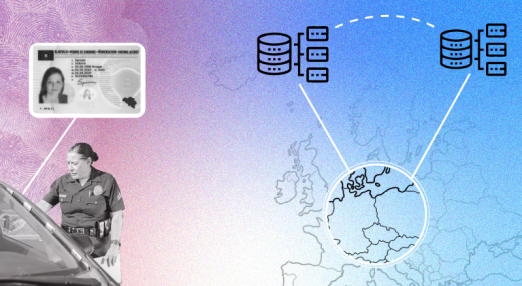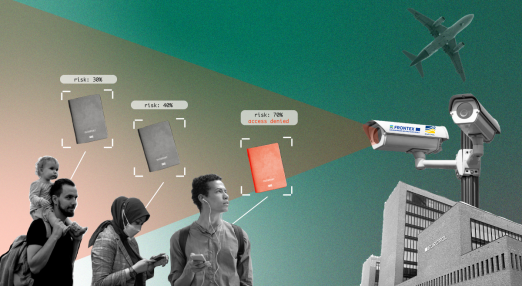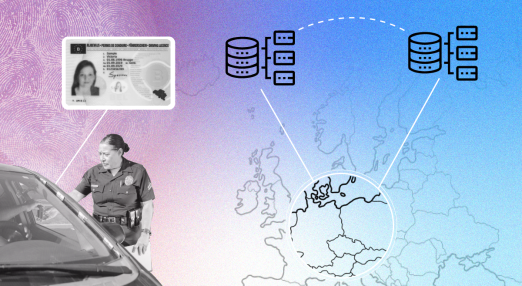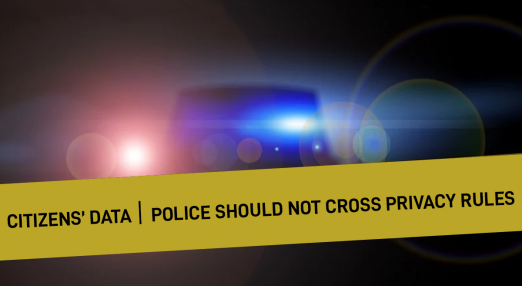UK data adequacy under scrutiny: civil society warns EU not to reward deregulation disguised as ‘simplification’
Civil society organisations, including EDRi and EDRi members Open Rights Group and Privacy International, are urging the European Commission not to re-adopt the UK’s data adequacy decisions without meaningful reform. The UK’s rollback of protections under the guise of ‘simplification’ puts the level of protection required by the General Data Protection Regulation (GDPR) and Court of Justice of the European Union (CJEU) case law at risk and exposes the Commission’s decisions to legal challenge.
Filter resources
-

UK data adequacy under scrutiny: civil society warns EU not to reward deregulation disguised as ‘simplification’
Civil society organisations, including EDRi and EDRi members Open Rights Group and Privacy International, are urging the European Commission not to re-adopt the UK’s data adequacy decisions without meaningful reform. The UK’s rollback of protections under the guise of ‘simplification’ puts the level of protection required by the General Data Protection Regulation (GDPR) and Court of Justice of the European Union (CJEU) case law at risk and exposes the Commission’s decisions to legal challenge.
Read more
-

Greek Ministry of Asylum and Migration face a record-breaking €175,000 fine for the border management systems KENTAUROS & HYPERION
On 3 April, the Greek Data Protection Authority (DPA) slapped the Ministry of Asylum and Migration with a record-breaking €175,000 fine under the General Data Protection Regulation for the border management systems KENTAUROS and HYPERION. The DPA’s investigation started back in 2022, following a strategic complaint filed by the EDRi member Homo Digitalis and its partners in Greece.
Read more
-

Automated data exchange in Prüm II: The EU’s securitisation mindset keeps encroaching on our fundamental rights
The agreement on automated data exchange for police cooperation, known as ‘Prüm II aligns with a broader EU trend of laws prioritising national security over human rights. The final text of this regulation has insufficient fundamental rights safeguards and could even encourage more member states to adopt facial recognition technology. The EU Parliament must reject the current Prüm II Regulation in the upcoming plenary vote.
Read more
-

Do you trust the police? CJEU Advocate General accepts access to phones for any type of crime
In its opinion on the Bezirkshauptmannschaft Landeck case, the Advocate General of the European Court of Justice is failing to suggest adequate safeguards for police access to our smartphones.
Read more
-

Police plans for the “future of travel” are for “a future with even more surveillance”
Plans hatched by Europol and Frontex to develop a “European System for Traveller Screening” that would require massive data processing and automated profiling have been condemned as ushering in “a future with even more surveillance” by German left MEP Cornelia Ernst, who told Statewatch that “the daily lives of millions of people” should not be shaped by “agencies that long ceased to be controllable by the public and the parliament.”
Read more
-

Position Paper: New EU law amplifies risks of state over-reach and mass surveillance
The EDRi network published its position paper on the proposed Regulation on automated data exchange for police cooperation (“Prüm II”). The European Commission’s Prüm II proposal fails to put in place vital safeguards designed to protect all of us from state overreach and authoritarian mass surveillance practices. In the worst case scenario, we may no longer be able to walk freely on our streets as the new law would treat large parts of the population as a criminal before proven otherwise.
Read more
-

Press release: European Commission jumps the gun with proposal to add facial recognition to EU-wide police database
The European Commission has put forward a proposal to ‘streamline’ the automated sharing of facial recognition images and other sensitive data by police across the EU. What will be discarded in order to ‘streamline’ the process? Vital safeguards which are designed to protect all of us from state over-reach and authoritarian mass surveillance practices.
Read more
-

Why chat control is so dangerous
Fighting the dissemination of child sexual abuse material, the EU Commission is considering dangerous measures: the automated search of content on mobile phones and computers. See answers to the key questions regarding „chat control“ in Netzpolitik's overview.
Read more
-

Human rights groups win European Court of Human Rights claim on UK mass surveillance regime
Eight year legal battle against UK mass surveillance programmes exposed by whistleblower Edward Snowden culminates in victory for privacy. EDRi's member Privacy International worked actively to make this happen.
Read more
-

EDRi challenges expansion of police surveillance via Prüm
The Prüm framework permits police forces of EU Member States to exchange DNA files, fingerprints, vehicle data via a decentralised system. The European Commission and the Council are pushing for a “Next Generation Prüm” in which facial images, firearms data, driving licenses, extracts of police records, data about third-country nationals and many additional types of data could be shared via the system.
Read more
-

Eurodac database repurposed to surveil migrants
Eurodac is the EU database used to store asylum seekers’ and refugees’ data, as well as certain categories of “irregular” migrants. By the end of 2019, the EU stored almost 6 million peoples’ fingerprint sets in the database. Research show how legislative developments transform the Eurodac database into “a powerful tool for mass surveillance”, endangering migrants' fundamental human rights.
Read more
-

A vicious circle? Enabling privacy-friendly alternatives to behavioural advertising
EDRi member Panoptykon Foundation published a report “To Track or Not to Track: Towards Privacy-Friendly and Sustainable Advertising” which argues that there is only one winner in this supposed “win-win” situation: the ad tech industry.
Read more
